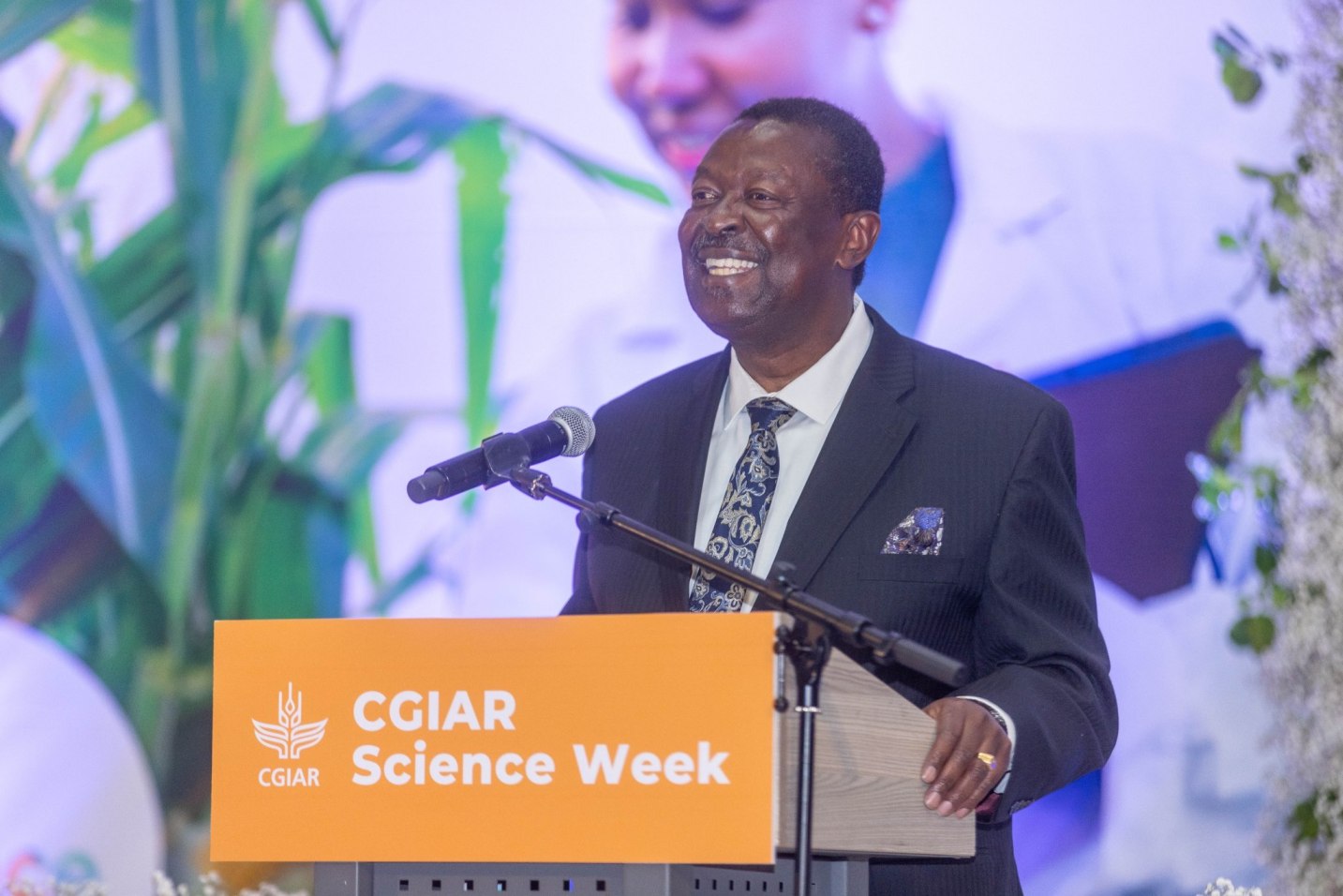Mudavadi raises concern over ongoing hunger problem in Kenya

Mudavadi called for bold, science-driven solutions to tackle the global food security crisis.
Prime Cabinet Secretary and CS for Foreign and Diaspora Affairs Musalia Mudavadi challenged Kenyans and their leaders to reflect on why hunger continues to affect some people in this age of technological progress.
Speaking at the launch of the Consultative Group on International Agricultural Research (CGIAR) Science Week 2025 on Monday, April 7, at the United Nations Headquarters in Nairobi, Mudavadi stressed that science is a vital catalyst for achieving food security and a fundamental pillar for maintaining political stability.
Mudavadi cautioned that without the role of science, the world would struggle to establish resilient food systems.
He also raised the question of why hunger continues to exist despite significant progress in science and technology.
"Why are we still hungry when science and technology have given us the tools? This is a critical question we must ask ourselves," he posed.
The Prime CS explained that nations cannot remain stable without food.
Mudavadi emphasized that agriculture is the foundation of Africa's economy, providing employment for more than 60% of the population.
He highlighted the sector's significant contribution to national output and its crucial role in ensuring food security for millions across the continent.
However, he acknowledged the numerous challenges facing the sector, including the impacts of climate change and extreme weather events, land degradation, soil infertility, food insecurity, malnutrition, post-harvest losses, and limited access to technology, financing, and investment.
He also pointed to ongoing conflicts as a major hindrance to progress.
Mudavadi called for bold, science-driven solutions to tackle the global food security crisis.
He also urged leaders to embrace science and technology more strategically, emphasizing that such efforts would enhance food production, combat agricultural diseases, and mitigate the effects of climate change.
Moreover, Mudavadi stated that the 2025 theme, Welcoming Science, was particularly timely as nations grapple with escalating food insecurity, climate shocks, and soil degradation.
He referred to the conference as a pivotal moment and emphasized the importance of collaboration among governments, researchers, and development partners to address these pressing issues.
“It is a call to action for governments, researchers, private sector players, and development partners to chart a new path for sustainable agriculture and resilient food systems in low- and middle-income countries,” he said.
Mudavadi commended Kenya's enduring partnership with the Consultative Group on International Agricultural Research, (CGIAR,) recognizing the contributions of the International Livestock Research Institute (ILRI), International Food Policy Research Institute (IFPRI), and the Kenya Agricultural and Livestock Research Organization (KALRO) in developing drought-resistant crops, livestock vaccines, and climate-smart farming solutions.
CGIAR Science Week 2025 is a week-long conference that gathers global experts to accelerate science-driven solutions aimed at enhancing agriculture, climate resilience, and sustainable food systems.
